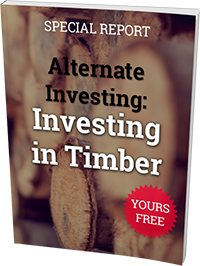Longtime readers know that I monitor the investment strategies of top college endowments closely.
Since 2009, I have mimicked Harvard’s “policy portfolio” using exchange-traded funds (ETFs). I call it the “Ivy Plus” investment strategy.
As we close the books on 2017, the “Ivy Plus” portfolio has generated a substantial 19.59% return so far. Yet, that result still trails the broader U.S. stock market’s gain of 21.72%, as measured by the Vanguard Total Stock Market ETF (VTI).
That’s the fifth consecutive year the “Ivy Plus” portfolio has trailed the U.S. stock market. No wonder the endowment’s investing has come under fire over the past few years.
The “Yale Model”: The #1 Insight of Modern Finance
David Swensen of the Yale University endowment is the doyen of endowment investing. Imitation, of course, is the sincerest form of flattery.
Today, the Stanford, MIT and the Princeton endowments all boast former Swensen deputies at their helm. Each also has adopted the “Yale model” of investing pioneered by Swensen in the 1980s.
So what is Yale’s “secret sauce”?
Until 1985, Yale had invested in mainstream U.S. stocks and bonds with a smidgen of foreign stocks and real estate.
Swensen was the first to apply modern portfolio theory to sizeable multi-billion-dollar endowments. He understood that “asset allocation” explains over 90% of a portfolio’s investment returns.
The decision whether to invest in specific asset classes matters much more than picking the right stocks. Over the past 30 years, Yale has shifted the bulk of its investments into “alternative assets” like natural resources, venture capital, real estate and foreign stocks.

Is the Yale Model Busted?
Up until 2008, it was hard to argue with Swensen’s success.
Yale’s endowment could boast 15.6% average annual returns through 2007 — and no down years — stretching back to 1987.
But the past decade has been less kind to Swensen’s strategy. The Yale endowment returned 8.1% per annum over the 10 years ending June 30, 2016.
That still beats the S&P 500’s average annual return of 7.5% over the same period. But there’s little question that Yale’s edge has waned.
And over the past five years, the Yale endowment has trailed the 15.99% average return of the S&P 500 quite substantially. Yale argues that comparing its performance to the S&P 500 misses the point.
After all, Yale’s allocation of U.S. stocks in 2016 stood at a mere 4%.
What You Can Learn from Yale
So, if investing in an S&P 500 index fund beats Yale, why should you ever bother to mimic its complicated strategy? Well, if you have a long time horizon like Yale, you should.
Yes, the S&P 500 has beaten Yale’s endowment over the past five years. But that’s highly unusual.
Over the last 30 years, the S&P 500 has generated an annual return of around 10%. Yale’s 12.9% average annual returns over the past 40 years beat the S&P 500 by just under 3% per year.
That does not seem like much. But consider this…
Over the past 30 years, Yale’s investment strategy has added $26.6 billion in value compared to its benchmark. That figure is larger than the value of Yale’s entire endowment today.
How You Can Invest Like Yale
Today, you can track a good chunk of Yale’s strategy using ETFs. No, you can’t replicate Yale’s outsized returns on, say, its early venture capital investments in the likes of Amazon.
But there are plenty of ETFs that allow you to invest in other alternative asset classes. Just consider the top three performers of the model “Ivy Plus” portfolio for 2017.
The iShares Global Timber & Forestry (WOOD) is up 34.48%. Although you can’t go out and buy New Zealand and Romanian forests like Harvard can, you can still buy an ETF that invests in timber stocks. This ETF tracks the S&P Global Timber & Forestry Index, which is designed to mirror the performance of 25 of the most valuable publicly traded forest and timberland companies.
Second and third are two global small-cap ETFs, the WisdomTree Emerging Markets Small Cap Div (DGS), up 31.99%, and the iShares MSCI EAFE Small-Cap ETF (SCZ), jumping 30.60%. Both ETFs are bets on the “small-cap effect.”
The small-cap effect is the longstanding market anomaly that small-cap stocks consistently outperform large-cap stocks over the long run.
As it turns out, David Swensen is a big fan of small-cap stocks.
He has pointed out that if you put a dollar into U.S. small-cap stocks in June of 1932, by the end of 2006, you would have made 1,592 times your money.
The same number for the Dow Jones Industrial Average is 266.
Studies confirm that the small-cap effect holds everywhere on the planet — in Asia, Europe, Latin America, the Middle East and Africa.
What’s the takeaway?
Diversifying beyond mainstream U.S. stocks and bonds is crucial if you have a long-term investment horizon.
Investors in U.S. stocks have enjoyed an “exorbitant privilege” of a remarkable run in U.S. stocks since March 2009. Don’t make the mistake of thinking that this privilege will last forever.
The endowment managers at Yale and Stanford and MIT aren’t as dumb as you think.
In case you missed it, I encourage you to read my e-letter article from last week about why one value investor is betting on General Motors.



